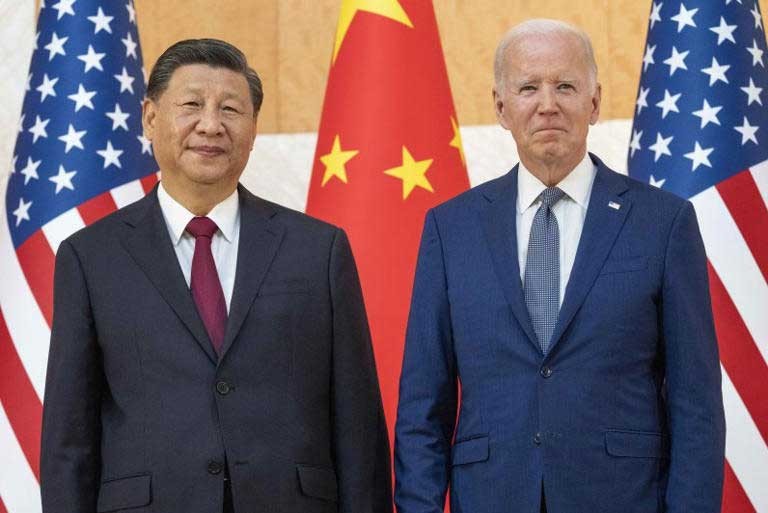Sydney Morning Herald
When it comes to defending Taiwan, Biden should keep China guessing
Story by Marcus Ray • 8h ago - 19-4-2023
Strategic clarity also amounts to a blank cheque that does not allow for the same changes in interpretation that strategic ambiguity permits as circumstances evolve. Beijing could choose when Washington fights a war it is not certain it can win. This is not an enviable position for the US.
Finally, strategic ambiguity gives Washington’s allies more room to manoeuvre. They value this flexibility. It allows them to hedge against uttering steadfast commitments to Taipei while remaining supportive of US strategic direction. They can juggle complex regional relationships.
US strategic clarity would compel these allies instead to make a decision they have not yet had the time or the ability to make. Such expectations and red lines would stress an already laboured transatlantic relationship, which lacks internal coherence and is beset by the ongoing Russia threat. Only recently, France’s President Macron framed potential cross-Strait conflict as a crisis that is “not ours”.
It would also constrain the options for other regional players who carefully tread a tightrope between competing superpower interests. The prospect of further integration with US defence and foreign policy with possible involvement in conflict may well nudge them towards Beijing. Washington cannot risk accelerating the bifurcation of the Indo-Pacific.
While strategic clarity would increase co-ordination between loyal allies, the US should not foist a premature decision on countries when it would go against Washington’s interests. These discussions are still worth holding now and in public, however. It is time to make difficult decisions on whether – and to what extent – allies, including Australia, should follow Washington’s lead.
For the US, formally committing to Taiwan’s defence is not the answer right now, but it should still commit forcefully in other ways. It should help Taiwan become the prickliest of prickly porcupines that could repel an invasion.
This in itself is a formidable deterrent. It also sends a clear message to Beijing of support for Taiwan without an official change in policy. Even in ambiguity, some clarity can be found. But anything more would be too much, too soon. Strategic ambiguity should remain Washington’s unambiguous policy for now.
US President Joe Biden with Chinese President Xi Jinping before a meeting on the sidelines of the G20 summit meeting in November 2022.
© AP
When it comes to defending Taiwan, Biden should keep China guessing
Story by Marcus Ray • 8h ago - 19-4-2023
Strategic clarity also amounts to a blank cheque that does not allow for the same changes in interpretation that strategic ambiguity permits as circumstances evolve. Beijing could choose when Washington fights a war it is not certain it can win. This is not an enviable position for the US.
Finally, strategic ambiguity gives Washington’s allies more room to manoeuvre. They value this flexibility. It allows them to hedge against uttering steadfast commitments to Taipei while remaining supportive of US strategic direction. They can juggle complex regional relationships.
US strategic clarity would compel these allies instead to make a decision they have not yet had the time or the ability to make. Such expectations and red lines would stress an already laboured transatlantic relationship, which lacks internal coherence and is beset by the ongoing Russia threat. Only recently, France’s President Macron framed potential cross-Strait conflict as a crisis that is “not ours”.
It would also constrain the options for other regional players who carefully tread a tightrope between competing superpower interests. The prospect of further integration with US defence and foreign policy with possible involvement in conflict may well nudge them towards Beijing. Washington cannot risk accelerating the bifurcation of the Indo-Pacific.
While strategic clarity would increase co-ordination between loyal allies, the US should not foist a premature decision on countries when it would go against Washington’s interests. These discussions are still worth holding now and in public, however. It is time to make difficult decisions on whether – and to what extent – allies, including Australia, should follow Washington’s lead.
For the US, formally committing to Taiwan’s defence is not the answer right now, but it should still commit forcefully in other ways. It should help Taiwan become the prickliest of prickly porcupines that could repel an invasion.
This in itself is a formidable deterrent. It also sends a clear message to Beijing of support for Taiwan without an official change in policy. Even in ambiguity, some clarity can be found. But anything more would be too much, too soon. Strategic ambiguity should remain Washington’s unambiguous policy for now.
US President Joe Biden with Chinese President Xi Jinping before a meeting on the sidelines of the G20 summit meeting in November 2022.
© AP
2 yr. ago


